List Of Hospitals In Singapore
| HOSPITAL NAME | WEBSITE | ADDRESS | TELEPHONE |
| Changi General Hospital (CGH) | http://www.cgh.com.sg/ | 2 Simei Street 3 Singapore 529889 | Tel (General) : 6788-8833 Tel (24hr/Emergency) : 6850-1680 Fax : 6788-0933 Email : feedback@cgh.com.sg |
| Gleneagles Hospital | http://www.gleneagles.com.sg/ | 6A Napier Rd Singapore 258500. | Tel (General) : 6473-7222 Tel (24hr/Emergency) : 6470-5688 Fax : 6475-1832 Email : enquiries@gleneagles.com.sg |
| Khoo Teck Puat Hospital | https://www.ktph.com.sg/ | 90 Yishun Central, Singapore 768828 | Monday to Friday: 8am – 5.30pm Saturday: 8am – 11am Sunday & Public Holiday: Closed |
| Mount Alvernia Hospital | https://mtalvernia.sg/ | 820 Thomson Road, Singapore 574623 | 65 6347 6688 Saturday – Open 24 hours Sunday – Open 24 hours Monday – Open 24 hours Tuesday – Open 24 hours Wednesday – Open 24 hours Thursday – Open 24 hours Friday – Open 24 hours |
| National University Hospital (NUH) | https://www.nuh.com.sg/ | 5 Lower Kent Ridge Rd, Singapore 119074 | Tel: 65 6347 6688 Saturday – Open 24 hours Sunday – Open 24 hours Monday – Open 24 hours Tuesday – Open 24 hours Wednesday – Open 24 hours Thursday – Open 24 hours Friday – Open 24 hours |
| Ng Teng Fong General Hospital | https://www.ntfgh.com.sg/Pages/default.aspx | 1 Jurong East Street 21, Singapore 609606 | Tel: +65 6908 2222 Saturday – Open 24 hours Sunday – Open 24 hours Monday – Open 24 hours Tuesday – Open 24 hours Wednesday – Open 24 hours Thursday – Open 24 hours Friday – Open 24 hours |
| Parkway East Hospital (former East Shore Hospital) | https://www.parkwayeast.com.sg/ | 321 Joo Chiat Pl, Singapore 427990 | Tel: +65 6377 3737 Saturday – Open 24 hours Sunday – Open 24 hours Monday – Open 24 hours Tuesday – Open 24 hours Wednesday – Open 24 hours Thursday – Open 24 hours Friday – Open 24 hours |
| Raffles Hospital | https://www.rafflesmedicalgroup.com/services/hospital/ | 585 North Bridge Road Raffles Hospital, Singapore | Tel:+65 6311 2222 Saturday – Open 24 hours Sunday – Open 24 hours Monday – Open 24 hours Tuesday – Open 24 hours Wednesday – Open 24 hours Thursday – Open 24 hours Friday – Open 24 hours |
| Sengkang General Hospital | https://www.skh.com.sg/ | 110 Sengkang E Way, Singapore 544886 | Tel:+65 6930 5000 Saturday – Open 24 hours Sunday – Open 24 hours Monday – Open 24 hours Tuesday – Open 24 hours Wednesday – Open 24 hours Thursday – Open 24 hours Friday – Open 24 hours |
| Singapore General Hospital (SGH) | https://www.sgh.com.sg/ | 31 Third Hospital Ave, Singapore 168753 | Tel:+65 6321 4377 Saturday – Open 24 hours Sunday – Open 24 hours Monday – Open 24 hours Tuesday – Open 24 hours Wednesday – Open 24 hours Thursday – Open 24 hours Friday – Open 24 hours |
| Tan Tock Seng Hospital (TTSH) | https://www.ttsh.com.sg/Pages/default.aspx | 11 Jln Tan Tock Seng, Singapore 308433 | Tel:+65 6256 6011 Saturday – Open 24 hours Sunday – Open 24 hours Monday – Open 24 hours Tuesday – Open 24 hours Wednesday – Open 24 hours Thursday – Open 24 hours Friday – Open 24 hours |
| Alexandra Hospital | https://www.ah.com.sg/Pages/Home.aspx | 378 Alexandra Rd, Singapore 159964 | Tel:+65 6908 2222 Saturday – Open 24 hours Sunday – Open 24 hours Monday – Open 24 hours Tuesday – Open 24 hours Wednesday – Open 24 hours Thursday – Open 24 hours Friday – Open 24 hours |
| Ang Mo Kio-Thye Hua Kwan Hospital Ltd | https://www.amkh.org.sg/ | 17 Ang Mo Kio Ave 9, Singapore 569766 | Tel:+65 6453 8033 Saturday 12–2PM, 6–8PM Sunday 12–2PM, 6–8PM Monday 12–2PM, 6–8PM Tuesday 12–2PM, 6–8PM Wednesday 12–2PM, 6–8PM Thursday 12–2PM, 6–8PM Friday 12–2PM, 6–8PM |
| Bright Vision Hospital | https://www.singhealth.com.sg/SCH | 5 Lrg. Napiri, Singapore 547530 | Tel:+65 6248 5755 Saturday 10AM–9PM Sunday 10AM–9PM Monday 10AM–9PM Tuesday 10AM–9PM Wednesday 10AM–9PM Thursday 10AM–9PM Friday 10AM–9PM |
| Jurong Community Hospital | https://www.jch.com.sg/Pages/default.aspx | 1 Jurong East Street 21, Singapore 609606 | Tel: +65 6716 2000 Saturday – Open 24 hours Sunday – Open 24 hours Monday – Open 24 hours Tuesday – Open 24 hours Wednesday – Open 24 hours Thursday – Open 24 hours Friday – Open 24 hours |
| Kwong Wai Shiu Hospital And Nursing Home | https://www.kwsh.org.sg/en/ | 705 Serangoon Rd, Singapore 328127 | Tel:+65 6248 5755 Saturday 8:30AM–1PM Sunday Closed Monday 8:30AM–5PM Tuesday 8:30AM–5PM Wednesday 8:30AM–5PM Thursday 8:30AM–5PM Friday 8:30AM–5PM |
| Ren Ci Long Term Care (Hougang) | https://www.renci.org.sg/ | 10 Buangkok View, Singapore 539747 | Tel (General) : 6385-0288 Tel (24hr/Emergency) : Fax : 6385-0388 Email : renci@renci.org.sg |
| Ren Ci Community Hospital | https://www.renci.org.sg/Our-Services/Community-Hospital | 71 Irrawaddy Rd, Singapore 329562 | Main : 6385 0288 Fax : 6358 0900 Open 24 hours |
| Ren Ci Nursing Home | https://www.renci.org.sg/our-services/nursing-home | 10 Ang Mo Kio Ave 8, Singapore 567727 | Tel: +65 6355 6316 Open 24 hours |
| Sengkang General & Community Hospitals | https://www.skh.com.sg/ | 110 Sengkang E Way, Singapore 544886 | Tel: +65 6930 5000 Saturday – Open 24 hours Sunday – Open 24 hours Monday – Open 24 hours Tuesday – Open 24 hours Wednesday – Open 24 hours Thursday – Open 24 hours Friday – Open 24 hours |
| St Andrew’s Community Hospital (SACH) | https://www.samh.org.sg/st-andrews-community-hospital/ | 8 Simei St 3, Singapore 529895 | Tel: +65 6586 1000 Saturday – Open 24 hours Sunday – Open 24 hours Monday – Open 24 hours Tuesday – Open 24 hours Wednesday – Open 24 hours Thursday – Open 24 hours Friday – Open 24 hours |
| St Luke’s Hospital | https://www.slh.org.sg/ | 2 Bukit Batok Street 11, Singapore 659674 | Tel: +65 6563 2281 Saturday – Open 24 hours Sunday – Open 24 hours Monday – Open 24 hours Tuesday – Open 24 hours Wednesday – Open 24 hours Thursday – Open 24 hours Friday – Open 24 hours |
| Yishun Community Hospital | https://www.yishuncommunityhospital.com.sg/ | 2 Yishun Central 2, Singapore 768024 | Tel: +65 6807 8800 Saturday – Open 24 hours Sunday – Open 24 hours Monday – Open 24 hours Tuesday – Open 24 hours Wednesday – Open 24 hours Thursday – Open 24 hours Friday – Open 24 hours |
| Adam Road Medical Centre | https://pachealthholdings.com/adam-road-medical-centre-armc/ | 559 Bukit Timah Road, #01-02, King’s Arcade, Singapore 269695 | Tel: +65 6466 7777 Sunday Closed Monday 9AM–6PM Tuesday 9AM–6PM Wednesday 9AM–6PM Thursday 9AM–6PM Friday 9AM–6PM Saturday 9AM–1PM |
| Institute Of Mental Health (IMH) (former Woodbridge Hospital) | https://www.imh.com.sg/Pages/default.aspx | 10 Buangkok View, Buangkok Green, Medical Park, Singapore 539747 | Tel: +65 6389 2000 Saturday – Open 24 hours Sunday – Open 24 hours Monday – Open 24 hours Tuesday – Open 24 hours Wednesday – Open 24 hours Thursday – Open 24 hours Friday – Open 24 hours |
| Johns Hopkins Singapore International Medical Centre (IMC) | https://www.hopkinsmedicine.org/international/index.html | 11 Jln Tan Tock Seng, Singapore 308433 | Tel: +65 6880 2222 Monday to Sunday. 8am – 3pm, 6pm -10pm |
| KK Women’s And Children’s Hospital (KKH) | https://www.kkh.com.sg/ | 100 Bukit Timah Rd, Singapore 229899 | Tel: +65 6225 5554 Saturday – Open 24 hours Sunday – Open 24 hours Monday – Open 24 hours Tuesday – Open 24 hours Wednesday – Open 24 hours Thursday – Open 24 hours Friday – Open 24 hours |
| Mount Elizabeth Hospital | https://www.mountelizabeth.com.sg/ | 3 Mount Elizabeth, Singapore 228510 | Tel: +65 6737 2666 Saturday – Open 24 hours Sunday – Open 24 hours Monday – Open 24 hours Tuesday – Open 24 hours Wednesday – Open 24 hours Thursday – Open 24 hours Friday – Open 24 hours |
| National Cancer Centre Singapore (NCCS) | https://www.nccs.com.sg/ | 11 Hospital Cres, Singapore 169610 | Tel: +65 6436 8088 Sunday Closed Monday 8:30AM–5:30PM Tuesday 8:30AM–5:30PM Wednesday 8:30AM–5:30PM Thursday 8:30AM–5:30PM Friday 8:30AM–5:30PM Saturday 8:30AM–12:30PM |
| National Dental Centre of Singapore (NDC) | https://www.ndcs.com.sg/ | 5 Second Hospital Ave, Singapore 168938 | Tel: +65 6324 8802 Sunday Closed Monday 8:30AM–5:30PM Tuesday 8:30AM–5:30PM Wednesday 8:30AM–5:30PM Thursday 8:30AM–5:30PM Friday 8:30AM–5:30PM Saturday Closed |
| National Heart Centre Singapore (NHCS) | https://www.nhcs.com.sg/ | 5 Hospital Dr, Singapore 169609 | Tel: +65 6704 8000 Sunday Closed Monday 8AM–5PM Tuesday 8AM–5PM Wednesday 8AM–5PM Thursday 8AM–5PM Friday 8AM–5PM Saturday 8AM–1PM |
| National Neuroscience Institute (NNI) | https://www.nni.com.sg/ | 11 Jln Tan Tock Seng, Level 1, Singapore 308433 | Tel: +65 6357 7153 Sunday Closed Monday 8:30AM–5:30PM Tuesday 8:30AM–5:30PM Wednesday 8:30AM–5:30PM Thursday 8:30AM–5:30PM Friday 8:30AM–5:30PM Saturday Closed |
| National Skin Centre (NSC) | https://www.nsc.com.sg/Pages/home.aspx | 1 Mandalay Rd, Singapore 308205 | Tel: +65 6350 6666 Sunday Closed Monday 8AM–5PM Tuesday 8AM–5PM Wednesday 8AM–5PM Thursday 8AM–5PM Friday 8AM–5PM Saturday Closed |
| Singapore National Eye Centre (SNEC) | https://www.snec.com.sg/ | 11 Third Hospital Ave, Singapore 168751 | Tel: +65 6227 7255 Sunday 8:30AM–5:30PM Monday 8:30AM–5:30PM Tuesday 8:30AM–5:30PM Wednesday 8:30AM–5:30PM Thursday 8:30AM–5:30PM Friday 8:30AM–5:30PM Saturday 8:30AM–5:30PM |
| Thomson Medical Centre (TMC) | https://www.thomsonmedical.com/ | 339 Thomson Rd, Singapore 307677 | Tel: +65 6250 2222 Saturday – Open 24 hours Sunday – Open 24 hours Monday – Open 24 hours Tuesday – Open 24 hours Wednesday – Open 24 hours Thursday – Open 24 hours Friday – Open 24 hours |
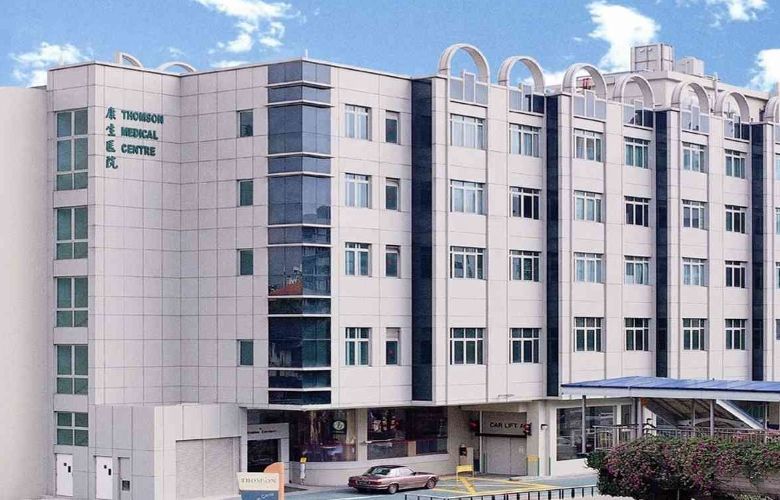
Singapore Private and Public Hospitals
Introduction :
The Ministry of Health (MOH) also stated that even though we spend only about 4% of our GDP on healthcare annually—as opposed to 16% in the USA and 8% in the UK—we still outperform many industrialized nations. With an average life expectancy of 84.07 (as of 2022), one of the highest in the world, we are also seeing how the success of our healthcare system may have tangible effects. While some of us believe that public hospitals alone are responsible for such high-quality healthcare outcomes, this isn’t always the case. There are times when our nation’s expectations are too great for public hospitals to handle.
The epidemic demonstrated that public healthcare resources are finite. Tharman Shanmugaratnam, a senior minister, briefed the assembly in June 2020 that COVID-19 had caused several elective surgeries to postpone since February of that year. At the time, the Ministry of Health stated that less urgent elective procedures would still delay, but more demanding patients’ medical services would start on June 2, 2020.
The yearly average public hospital bed occupancy rate (BOR) over the next five years would be over 80%, according to a parliamentary response issued on March 10, 2022. According to international healthcare guidelines, hospitals should keep their BOR below 85%. Therefore, it is likely that public hospitals will keep running at “full” capacity for a while.
What are the private hospitals in Singapore?
Private Hospitals:
Singapore’s reputable healthcare system includes public hospitals, private hospitals, and specialized medical facilities. They provide to deliver specialized care to regional and international patients while accommodating various patient requirements and price points.
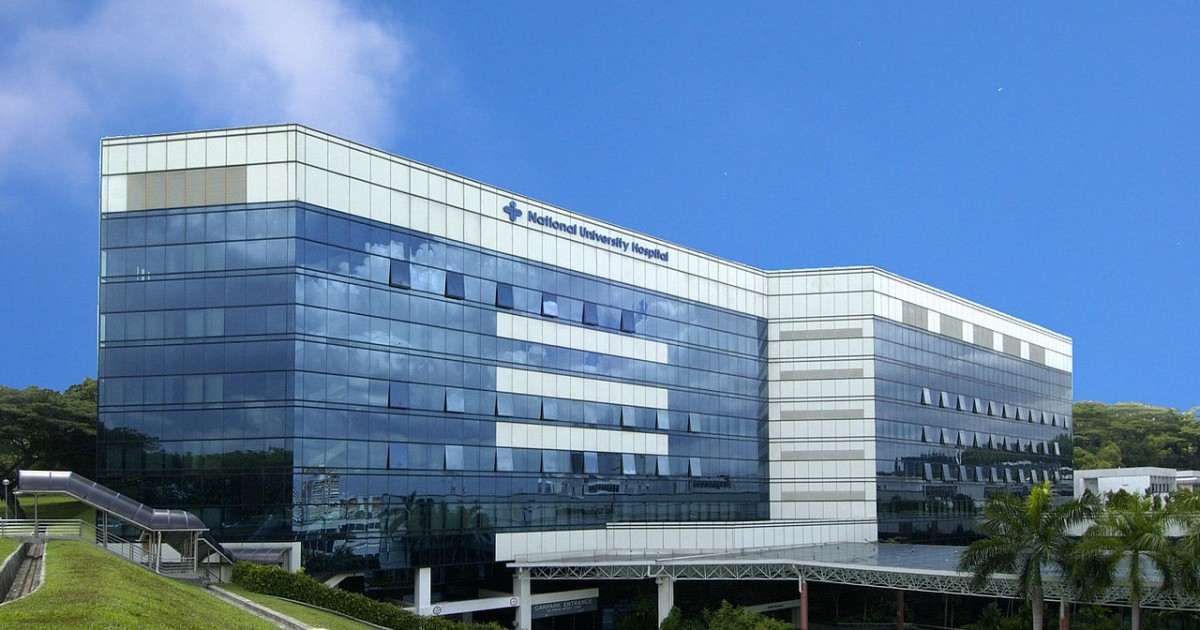
Concord International Medical Center :
Concord International Hospital’s specialties include comprehensive cancer therapy, minimally invasive surgery, and women’s healthcare. It offers various other services and is a 24-hour inpatient and outpatient care facility.
Farrer Park Hospital:
The mission of Farrer Park Hospital, a private tertiary healthcare facility, is to provide patients with a novel approach to medical care that will enable them to achieve their health objectives. This facility offers inpatient, outpatient, and Emergency services in a 20-story building that houses a hotel, spa, and Owen Link.
Gleneagles Hospital:
The best hospital in Singapore is called Gleneagles. A complete hospital may be difficult to find for patients in terms of patient-friendly services, high-quality medical treatment, specialized services, and cutting-edge medical technology. With extensive ties to premier hospitals around Asia, this famous facility also operates a dedicated land and air ambulance service.
Mount Alvernia Hospital:
In addition to offering general and emergency care, this 303-bed specialty hospital serves patients seeking treatment in sports medicine, cardiology, or neurology.
Mount Elizabeth Hospital:
The 345-bed Mount Elizabeth Hospital, operated by Parkway Health, offers orthopedics, cardiology, neurosurgery, and many other disciplines.
Mount Elizabeth Novena Hospital:
Patients can get tertiary medical care from more than 250 specialized experts in single-bed rooms at this 250-bed facility, the newest addition to the Mount Elizabeth network of hospitals.
Parkway East Hospital :
The Telok Kurau hospital, which has 106 beds, is not the largest in Singapore but does house several medical specialties, including obstetrics and gynecology, ear, nose, and throat (ENT), orthopedic surgery, and more.
Raffles Hospital:
Due to its name and reputation for excellent services that even the best five-star hotels can’t equal, this 380-bed hospital is well-known in the Asian medical world. Raffles is a clinic where patients can go for Traditional Chinese Medicine (TCM), family medicine, health exams, round-the-clock emergency care, and much more.
Thomson Medical Centre:
Many Singaporeans have received high-quality medical care from this hospital since it opened in 1979. Since then, the center has gained recognition for its pediatrics, obstetrics, and gynecology services.
West Point Hospital:
A facility dedicated solely to outpatient care is West Point Hospital. It covers outpatient consultations and services, including Traditional Chinese Medicine (TCM), physiotherapy, rehabilitation, health screenings, lab tests, diagnostics, and other outpatient consultations.
What are the public hospitals in Singapore?
Singapore has 14 public hospitals, both general and specialist.
Alexandra Hospital:
This general public hospital was founded in 1938 and served as the primary hospital for British citizens in South-East Asia, which was then known as the “Far East.” It boasts excellent intensive care services, and practically all specialties are covered. They offer a wide variety of outpatient consultations.
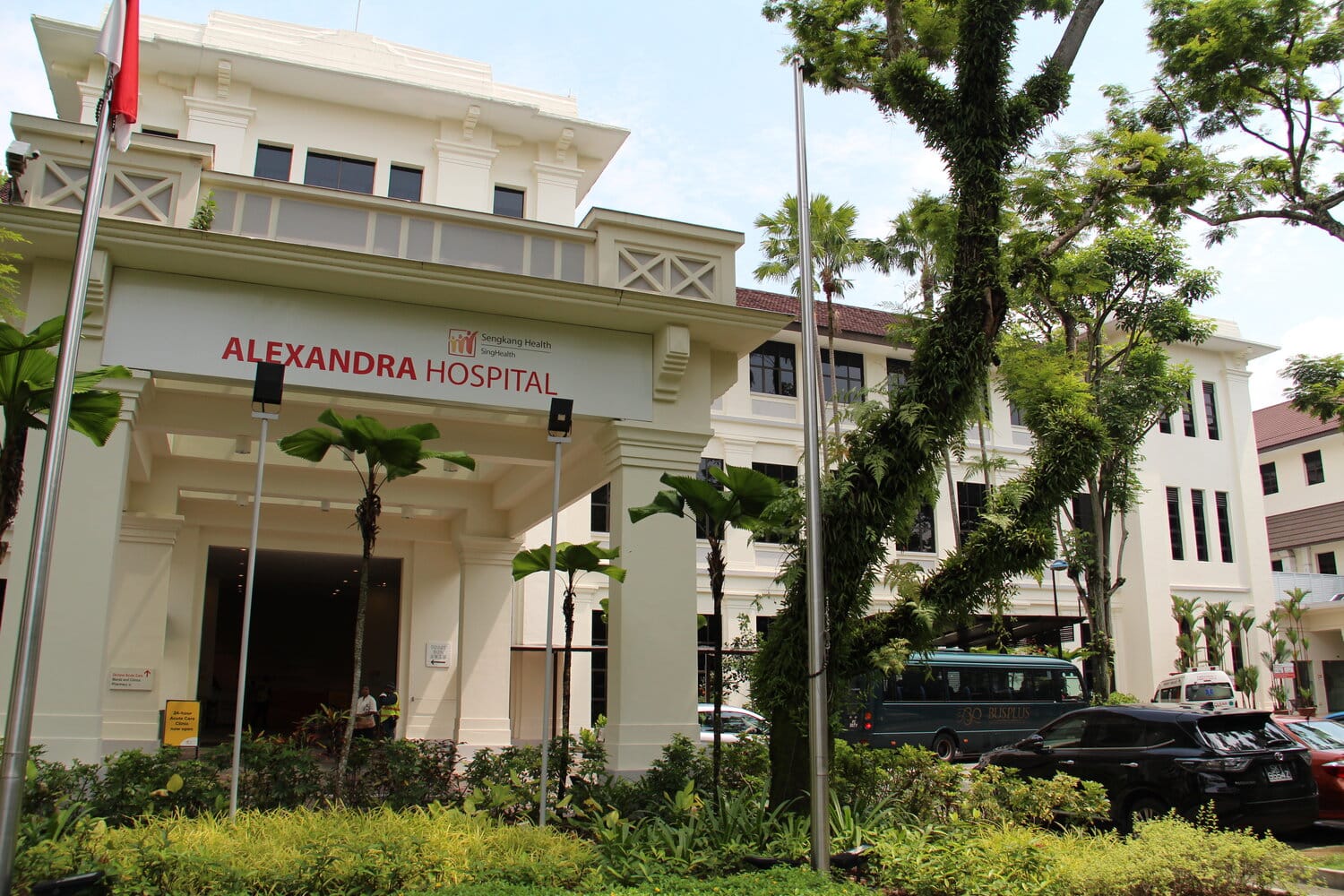
Changi General Hospital:
This public hospital gets situated in Singapore’s eastern region. It has several beds as well as an intensive care unit. The Breast Center, Changi Sports Medicine Center, Diabetes Center, Geriatric Center, Integrated Sleep Service, and Medical Center for International Travelers are just a few different specialist services. Additionally, well-known for its proficiency in sports medicine is Changi General Hospital.
Khoo Teck Puat Hospital:
This sizable governmental hospital gets situated in Singapore’s northern region. About 600 beds, two acute hospitals, several intervention rooms, and even a luxury suite are all part of this facility. The hospital is now building new structures to expand services, especially outpatient consultations.
KK Women’s and Children’s Hospital:
The primary focus of this essential public hospital, formerly known as “Kandang Kerbau Hospital,” is the treatment of women and children. One in every two Singaporeans was born in this hospital over the past 80 years, making it one of the most well-known in Singapore. The “KK” facility’s obstetric, gynecological, neonatology, and pediatric care departments have 830 beds.
National Heart Center :
This institution is skilled in treating cardiac conditions and is a pioneer in cardiovascular illnesses treatment. As a result, whether it is for outpatient or inpatient care, invasive or non-invasive care, it is well equipped for heart interventions and care.
National Cancer Center :
The national center for the battle against cancer gets located at this facility. Due to its interdisciplinary approach, NCC, which has one of the highest concentrations of oncologists in the world, can brag that it is a leader in the detection and treatment of cancer. Additionally, this hospital has facilities for research and teaching medical professionals, including nurses, doctors, and paramedics.
National Neuroscience Institute of Singapore :
This public hospital’s area of expertise is the awareness and treatment of neurological conditions, which can impact the brain, spine, nerves, and muscles. The sole neuroscience center in the region, it is situated in Novena in Singapore’s downtown. Its three essential services are neurology, neurosurgery, and neuroradiology, with training capabilities and research infrastructure.
National Skin Center:
Dermatological outpatient consultations are the main emphasis of these public health care institutions. It belongs to the National Healthcare Group and receives close to 1,000 people each day for consultations and treatments.
Ng Teng Fong General Hospital:
Jurong East is the location of this medium-sized hospital. Since it is a general hospital, the majority of ailments are accepted. It has emergency departments and 700 beds.
National University Hospital:
It is one of Singapore’s primary public hospitals and one of the many venues for clinical trials and medical and dental research. In addition, it has subspecialties in reconstructive microsurgery, hand surgery, obstetrics, oncology, and ophthalmology. An annual total of 49,000 inpatient consultations and 670,000 outpatient consultations get conducted at this affiliate of the National University Health System’s 1160 beds.
Singapore General Hospital:
It is Singapore’s largest and oldest hospital. This federal building gets situated at Bukit Merah. This hospital, which has four specialist medical centers, including the Singapore National Eye Centre, the National Heart Centre, the National Cancer Centre, and the National Dental Centre, handles almost all specializations.
Singapore National Eye Center:
This ophthalmology-focused center specifically prioritizes teaching and research. Myopia and glaucoma treatments are the focus of its clinical investigations. Around 14,000 major eye surgeries and 13,000 laser procedures get performed there.
Tan Tock Seng Hospital:
With 16 specialist centers and 8,000 employees, this hospital is among the largest in Singapore. Tan Tock Seng’s specialty clinics see more than 2,000 patients daily, with over 450 utilizing its emergency treatment.
Sengkang General Hospital:
The newest hospital in Singapore, Sengkang General Hospital, is due to open in the second half of 2018. It will be one of Singapore’s biggest hospitals once it gets finished. Four hundred new beds will be added to the Community Hospital, while the General Hospital will gain 1,000 new beds.The people who live in Singapore’s north will serve by encompassing Yio Chu Kang, Pasir Ris, Hougang, Sengkang, Punggol, and a larger area.
How many hospitals are there in Singapore?
Nine acute general and four community hospitals are among the 16 public hospitals and specialized institutes currently in operation. In public hospitals, Singaporean citizens and permanent residents often get government subsidies, with Singaporeans paying the least, permanent residents paying a little more, and non-residents paying the most.
Private hospitals run like private businesses, are more expensive than public hospitals, and do not offer patient subsidies. They are renowned for treating patients from outside and from medical tourism to Singaporeans. There are eight acute private hospitals, and each one accepts Medishield life/Private Hospital Integrated Shield Plan, Medisave donations, or insurance from your employer to cover your pocket expenses.
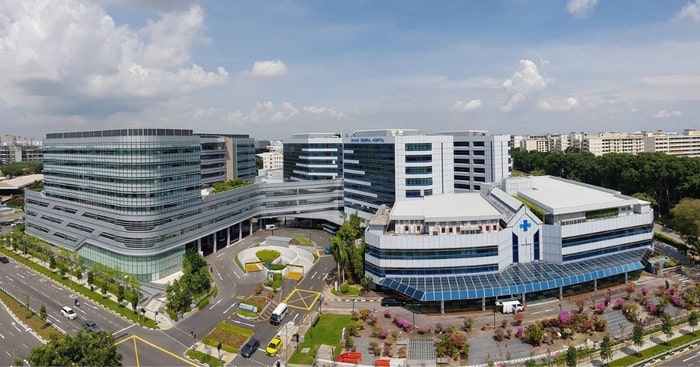
Specialist hospitals are facilities that treat a specific sickness, such as cancer or cardiovascular diseases. These facilities might be either public or private. The National Cancer Center, National Skin Center, and National Heart Center are a few general specialty hospitals.
What is the most famous hospital in Singapore?
Thomson Health Center:
The Thomson Medical Centre at Thomson Road, Singapore, provides a wide range of services for patients from outside, including extensive treatment choices. They offer a variety of amenities, including lodging, airport transportation, a menu selection, interpreters, SIM cards, and in-room televisions.
The Singapore General Hospital:
Since its founding in 1821, Singapore General Hospital (SGH) has come a long way to establish itself as the country’s first and biggest hospital that performs dual roles as a tertiary referral hospital and an academic health center.
National University Health System:
The National University Health System (NUHS) is a grouping of tertiary, acute, and community hospitals, national specialty centers, polyclinics, medical centers, and academic institutions in the health sciences. Its mission is to provide education, research, training, and clinical care to meet the healthcare needs of the medical community in Singapore. The National University Hospital, one of its cluster members, is the biggest and acts as its flagship hospital.
Singapore’s Farrer Park Hospital:
Farrer Park Hospital, a private sectors hospital in Singapore that opened its doors on March 16, 2016, offers a novel approach to medical care by involving patients as partners in the quest for good health and by giving them a conducive environment, or “oasis,” to achieve these aims. A medical center and a 20-story skyscraper called “Connexion,” which has a hotel, spa, and Owen Link, are connected to the hospital (a passage link running through the building).
Gleneagles Hospital:
Renowned hospital Gleneagles Hospital in Singapore offers various medical and surgical services. The JCI-accredited hospital, a component of Parkway Pantai, is located in Singapore on Napier Road in a convenient location directly across from Napier MRT station. The hospital began operations in 1957 as a 45-bed nursing facility, and it has now expanded to a 258-bed facility that offers care in more than 30 specialties.
What is the main hospital in Singapore?
Singapore’s first and biggest hospital is called Singapore General Hospital (SGH). It offers patients access to low-cost specialized care, trains medical doctors and other healthcare workers, and conducts research to improve patient care. Since its founding in 1821, Singapore General Hospital (SGH) has come a long way to establish itself as the country’s first and biggest hospital that performs dual roles as a tertiary referral hospital and an academic health center.
It is a flagship hospital for the public healthcare system and a part of the SingHealth network of medical institutions. It gets owned by the Singaporean government.
Which hospital is best in Singapore?
List of Best Hospitals In Singapore:
- Singapore General Hospital (SGH)
The SGH is Singapore’s largest tertiary hospital and offers comprehensive multidisciplinary care. As an academic hospital, it combines clinical care with education and research.
- National University Hospital (NUH)
The National University Hospital (NUH) is a significant tertiary and referral facility and Singapore’s first university hospital.
- Gleneagles Hospital
It belongs to the Parkway Hospital network of medical facilities. It is one of Asia’s biggest providers of healthcare.
- Mount Elizabeth Hospital – Orchard
Mount Elizabeth (Orchard), located in one of the busiest cities in the Asia Pacific, offers various internal medical services delivered by trained Health care professionals and personnel.
Are hospitals in Singapore private or public?
The Obama administration’s healthcare team is studying Singapore’s world-class healthcare system as a model as it looks for ways to revamp the US healthcare system. The World Health Organization (WHO) named Singapore’s healthcare system the best in Asia in 2000, beating out Hong Kong and Japan.In Singapore, there are both public and private healthcare institutions, each of which provides high-quality medical care with varying levels of comfort and service.
The medical insurance, benefits, and plans come in a wide range and often depend on your immigration status and employment. While foreigners with different work passes receive fitness through their company or private purchase, Singapore citizens and permanent residents are entitled to subsidized government healthcare services under the mandatory national savings system. Singapore does not require employers to offer additional benefits like health insurance. In general, the size of the business affects the possibility that it will present health insurance to its employees.
Is a private hospital better than public?
The Singaporean government prioritizes healthcare. According to research 2021 Most Efficient Health Care study, the nation has built one of the effective healthcare systems. Like many other countries, Singapore offers both public and private healthcare facilities. Due to the higher level of care and shorter wait times, many ex-pats favor private institutions. The Singaporean specialists give a brief comparison between public and private hospitals.
Wait times:
Wait times at public hospitals can be very long, frequently exceeding a few hours. Because wait times are first come, first served, they change daily. Private hospitals, on the other hand, often offer appointments and treat private patients more quickly.
Comfort levels:
While private hospitals offer contemporary amenities like single and luxury rooms, state hospitals typically require patients to share rooms with at least three other people.
Health professionals:
Although both public and private hospitals have well-trained medical staff, the latter are usually more seasoned. Since they are more likely to have received their training abroad, they might communicate with foreign patients more easily.
Equipment:
Similar to how private hospitals have more resources to invest in newer, more modern technology, even though public hospitals also house some cutting-edge medical equipment. Additionally, they deal with less red tape while buying equipment.
Subsidized medical treatment:
Subsidy programs like Medisave and others lower costs for citizens and PRs at public hospitals. There are no equivalent programs for private hospitals, and their charges are frequently significantly greater than those of their public counterparts (even before subsidies). Your bill might reach hundreds of dollars!
Similarities between Private Hospitals and Public Hospitals
Every person should think about how close their residences and places of employment are to various types of hospitals, even though it is unlikely that this point will make a significant difference to many people in Singapore. In Singapore, there are ten private hospitals and seven state hospitals as of the writing of this article. Patients should be aware of their preferred choice and where they will need to travel to receive the care they select, even though this increases the possibility that the nearby large private hospital is private.
Motivations:
It may be the case in almost every nation with both public and private healthcare systems, but it is still important to discuss the fundamental goals of both public and private hospitals. There are, undoubtedly, various approaches to approach the question of why a hospital exists. Some will assert that private hospitals are primarily motivated by financial gain. Others, however, will contend that because private clinics must compete for a patient’s financial support, they ultimately provide better services overall. Public hospitals can be so focused on caring for every patient that their customer service will suffer in the interim.
Subsidized care:
It’s critical to note the capacity to subsidize medical bills. As long as they follow the rules, like the previously mentioned room sharing, Singaporeans can use their Medisave accounts, other government programs, and subsidies to access low-cost healthcare from public hospitals. However, these kinds of assistance get completely prohibited at private hospitals. The private hospital bills are far more than that in public hospitals, even without subsidies, making this fact all the more essential.
Differences between Private Hospitals and Public Hospitals
Definition:
Private hospitals get owned, run, and supported by a single individual or group. Public hospitals, on the other hand, are institutions that are wholly managed and funded by the government.
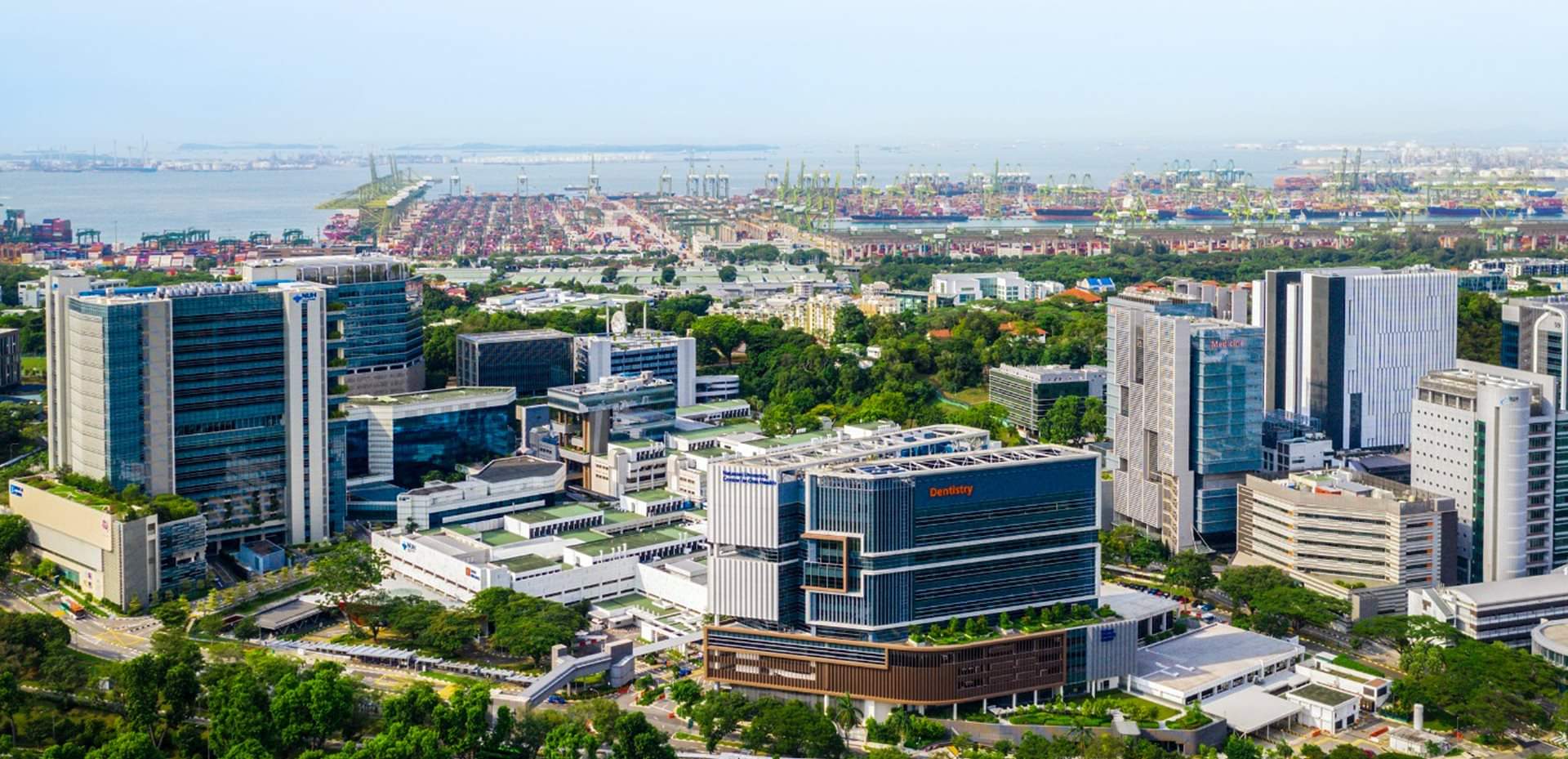
Quality of service:
Private hospitals offer high-quality medical care. On the other hand, public hospitals cannot afford to contribute high-quality medical care.
Waiting time:
Some patients need to analyze, public hospitals have long waiting periods, in contrast to private hospitals, which have tiny or no waiting periods.
The ratio of patients to doctors:
Public hospitals have a low doctor-to-patient ratio, to private hospitals have a high doctor-to-patient balance.
Affordability:
Public hospitals are cheaper for most patients, but private hospitals are more expensive.
Target patients:
Private hospitals treat wealthy patients since their treatments are so expensive, while public hospitals treat less affluent patients because their care is more readily available.
Private Hospitals vs. Public Hospitals
Public Hospital:
Any hospital that claims to be governed by the public gets entirely funded by the government and runs completely on money taken from taxpayers to support healthcare programs. Since the local government sets the budget for the equipment, staff, building of new facilities, and prescriptions, administrators will keep an eye on spending and provide a constrained range of services. Publicly funded hospitals are the most affordable choice for those with limited
private health insurance plan or who cannot afford to pay for their healthcare out of pocket payment.
Private hospital:
Privately owned hospitals are financed and run by the owner, who is frequently a business or a single person. Setting the budget, handling the money, and assuring strict adherence to local ordinances, state laws, and federal regulations will all be the responsibility of the facility’s owner. The business owner will also hire people, negotiate medical provider agreements, buy the necessary equipment, make maintenance investments, and oversee the services rendered.
Because they have a significant financial capacity and a reputation for providing high-quality care where patients receive individualized attention, private hospitals are frequently the preferred option. Due to the low patient-to-doctor ratio, people rarely have to wait a long time to see a doctor. These environments typically have substantially higher service costs, which draw more prosperous patients.











